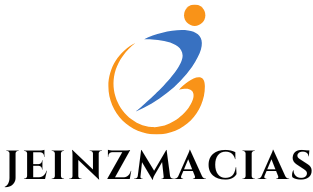Insurance can help to safeguard your business against unexpected costs and disasters, protecting it against anything that might cost your company thousands or even millions in one go. Without appropriate policies in place, even one incident could cost your organization dearly.
Avoid this situation by understanding why small businesses require insurance and which forms of coverage are available.
1. Property Insurance
Small businesses don’t usually have enough capital to replace assets if they become damaged, which makes property insurance one of the most essential forms of coverage. Property insurance protects your company against fire, theft and other perils as well as rental income losses or wages lost if the covered event forces your business to close down.
General liability insurance provides coverage against lawsuits stemming from property damage or bodily injuries to customers, financial losses arising from slander, copyright infringement and reputational harm. Professional liability (also referred to as errors and omissions insurance) helps cover legal fees associated with service-related mistakes or oversights, such as legal fees and settlement costs associated with mistakes and oversights in service provision.
Dependent upon your industry, federal and state regulations may require you to carry certain coverages. Lenders also often request proof of coverage before providing funding for business loans. Working with a licensed insurance agent will help determine an adequate minimum level of protection for your organization.
2. General Liability Insurance
Businesses may face liability claims or lawsuits for many reasons, including property damage, bodily injury and personal injury. Without general liability coverage, a company would likely need to cover legal fees, court costs, settlements and judgments out-of-pocket. With this policy in place, some of these financial risks can be transferred onto an insurer while they continue with operations with less stress and worry.
Intellectual property policies often cover intellectual property claims such as libel, slander, false advertising and copyright infringement. This type of coverage is one of the most frequently purchased policies among small businesses – in some cases it’s required in order to sign client contracts or lease commercial space.
Costs associated with liability coverage will depend on factors like industry, number of employees and clients and claims history of the business in question. Companies that have experienced previous liability claims will typically pay more; however implementing safety protocols and risk management strategies may help bring down that expense.
3. Business Auto Insurance
Your company probably requires business auto insurance if it operates vehicles like trucks and cars for business use, including liability and physical damage protection for these vehicles. Furthermore, this coverage could cover employees who use their personal cars or trucks for business reasons (known as hired and non-owned automobile coverage). In most states employers must also carry workers’ compensation coverage which pays medical costs and lost wages when an employee is injured on the job.
Other key forms of business insurance are general and professional liability policies, which offer your company protection against lawsuits involving property damage or injury to clients and professional mistakes or omissions that you make during work. Small businesses can typically obtain a business owner’s policy with general and commercial property coverage at a discounted price; larger organizations might prefer commercial package policies with more coverage options and options for higher risk businesses. If in doubt, consulting an experienced business insurance consultant may help evaluate risks and help select appropriate policies.
4. Business Owner’s Policy (BOP)
Business Owners Policy (BOP) is a cost-cutting and comprehensive package of at least two essential insurance coverages designed to protect small businesses against common risks such as property damage, business interruption and general liability that threaten their profitability and future goals. A BOP can serve as financial security against such threats as property damage, business interruption and general liability that threaten their operations and growth plans.
To qualify for a BOP policy, your business typically must meet certain size and revenue criteria, operate in low-risk industries, employ less than 100 people, and possess or lease commercial premises owned or leased by itself.
Finding the appropriate insurance can be challenging, but an experienced advisor can make the task simpler. They’ll assess your needs, evaluate providers and policies, assist in creating customized business insurance plans to fit you precisely, as well as simplify management by consolidating property and liability policies under one convenient policy – making renewals, premium payments and claims simpler for renewals, premium payments and claims management easier for renewals, premium payments and claims management easier too! BOPs are perfect for many types of businesses including retail stores and restaurants but ultimately it depends on your unique risks, industry and location factors when selecting an optimal policy policy is chosen by experts.
5. Workers’ Compensation
Small business owners invest time, energy and money into their ventures. Their businesses also play an essential role in local communities by creating jobs and providing tax revenue to municipal governments. Unfortunately, accidents do happen – and when they do they can have devastating results.
Small business owners need insurance in order to guard themselves from unexpected disasters they cannot predict or avoid, while also signalling to employees and customers that the company takes safety seriously, which can serve as an attractive selling point when recruiting talent or signing new clients.
As each business requires different coverage to address its unique risks and hazards, almost every small business should at minimum possess general liability insurance to protect itself against third-party claims of bodily injury, property damage or reputational harm caused by operations of its business. General liability coverage typically comes included as part of commercial package policies such as BOPs that can also include workers’ compensation coverage – a cost-effective solution in many states where businesses with employees must carry workers’ comp insurance.




